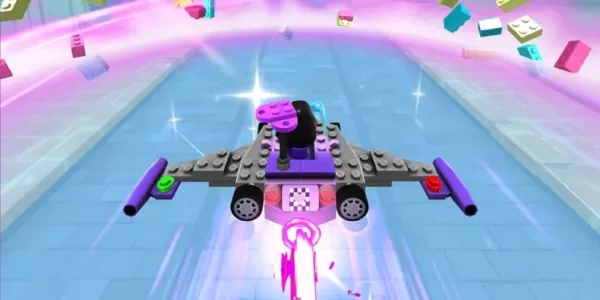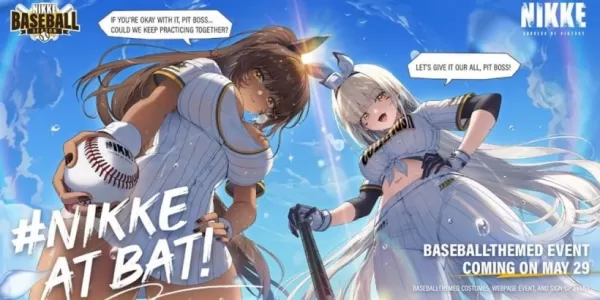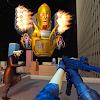![Blades of Fire Review [Demo] | Completely Un-forge-ettable!](https://imgs.s3s2.com/uploads/65/682728dd66604.webp)
Blades of Fire Review [Demo]
Completely Un-forge-ettable!
![Blades of Fire Review [Demo] | Completely Un-forge-ettable!](https://imgs.s3s2.com/uploads/29/682728df7be09.webp)
Have you ever backed out of something you were dead-set on just moments before—and had it turn out to be the right call? For someone as impulsive and indecisive as I am, that's a common occurrence (the backing out part, not the "it being the right call" part). Fortunately, in the case of Blades of Fire, my initial hesitation turned into a rewarding experience. What began as a rough and underwhelming demo transformed into a unique and engaging single-player RPG that I couldn't wait to get my hands on once it fully launches.
Yes, I'm raving about a demo—but bear with me as I explain how I went from disinterested to eagerly anticipating the full release. Let's dive into this review and see why Blades of Fire is truly un-forge-ettable!
No Ashen Ones or Unkindled Here—Just A Humble Blacksmith!
![Blades of Fire Review [Demo] | Completely Un-forge-ettable!](https://imgs.s3s2.com/uploads/68/682728e194c65.webp)
We start with the raw, unpolished introduction to Blades of Fire. I wish I could sugarcoat it, but the game's opening is its weakest link. It's not the ideal way to kick things off, but it sets the stage for the journey ahead.
The demo begins with Aran de Lira, a blacksmith working in a secluded forest. His routine is interrupted by a distant cry for help, prompting him to grab an iron axe and rush to the scene. He saves a young Apprentice but fails to rescue the Abbot. Aran then brings the survivor back to safety, and that's where the opening sequence ends.
Don't worry if it feels abrupt; it's just the demo's starting point. While it lacks the cinematic flair of other RPGs like The First Berserker: Khazan, which had robust dialogue and cutscenes, Blades of Fire opts for a more direct approach, thrusting you into the action with minimal setup.
![Blades of Fire Review [Demo] | Completely Un-forge-ettable!](https://imgs.s3s2.com/uploads/99/682728e3c9f8b.webp)
The combat tutorial follows, and it's not what I expected. Instead of the straightforward light and heavy attacks typical of Dark Souls, Blades of Fire adopts a directional combat system reminiscent of For Honor. You can strike with overhead, body, or lateral attacks, each with a heavy variant. Initially, it felt clunky and unnecessary, but as the game progressed, I appreciated its depth.
![Blades of Fire Review [Demo] | Completely Un-forge-ettable!](https://imgs.s3s2.com/uploads/76/682728e63fd56.webp)
After the tutorial, the game introduces different damage types—blunt, pierce, and slash—which interact uniquely with enemy armor. A clever color-coded targeting system helps you navigate these mechanics, making weapon swapping crucial for survival and strategy. The combat loop becomes engaging, not due to flashy animations but through the satisfying interplay of its mechanics. It's refreshing to see a game that rewards real-world knowledge of medieval weaponry.
![Blades of Fire Review [Demo] | Completely Un-forge-ettable!](https://imgs.s3s2.com/uploads/20/682728e8525ca.webp)
This game truly stands out with its weapon crafting system, which is unlike anything I've encountered before.
No Weapon Drops Here Either—You Gotta Make Your Own!
![Blades of Fire Review [Demo] | Completely Un-forge-ettable!](https://imgs.s3s2.com/uploads/86/682728e9e4855.webp)
Blades of Fire features a weapon crafting system that's both detailed and realistic. You won't be slaying beasts for oversized fantasy weapons; instead, you'll gather basic materials to forge meticulously crafted melee weapons.
![Blades of Fire Review [Demo] | Completely Un-forge-ettable!](https://imgs.s3s2.com/uploads/00/682728ec0ba43.webp)
At the heart of this system is the divine forge, your central hub and workstation. Crafting begins with sketching your desired weapon—let's say a spear. Unlike most games that simply require ingredients and produce a finished product, Blades of Fire demands attention to detail. You choose the spearhead's shape, cross-section geometry, haft length and type, and materials for each component. Crafting a sword involves decisions about the cross-guard design, pommel shape and size, and materials for every part. You can even create custom alloys to fine-tune your weapon's performance.
![Blades of Fire Review [Demo] | Completely Un-forge-ettable!](https://imgs.s3s2.com/uploads/46/682728eda2f14.webp)
Every choice impacts your weapon's stats and effectiveness, making crafting a strategic endeavor. Once you're satisfied with your design, the real forging begins. The forging minigame can be challenging at first, requiring precision and patience, much like real-life forging. You use sliders to shape heated metal, adjusting them with each strike to achieve the desired form. It's initially frustrating but rewarding once mastered, allowing you to save your best creations as templates.
![Blades of Fire Review [Demo] | Completely Un-forge-ettable!](https://imgs.s3s2.com/uploads/63/682728efaeb50.webp)
The game's innovative mechanics don't stop there.
New Blueprints, Weapons as Checkpoints, and Weapon Altars
![Blades of Fire Review [Demo] | Completely Un-forge-ettable!](https://imgs.s3s2.com/uploads/83/682728f200d33.webp)
In Blades of Fire, loot comes in the form of blueprints, materials, and parts for crafting. You unlock new weapons by defeating specific enemy types, each wielding unique gear. This hitlist-style progression encourages you to engage with a variety of enemies, who respawn each time you rest at your anvil, similar to Dark Souls' bonfire system.
![Blades of Fire Review [Demo] | Completely Un-forge-ettable!](https://imgs.s3s2.com/uploads/80/682728f40a7d6.webp)
The anvil serves as your checkpoint and resurrection point, where you can recycle or repair weapons and access the full Forge. Another unique feature is the Weapon Altars, which reward you with new components for your weapons when you interact with them while wielding the depicted weapon. This system encourages experimentation and repeated forging.
![Blades of Fire Review [Demo] | Completely Un-forge-ettable!](https://imgs.s3s2.com/uploads/64/682728f59dbbe.webp)
The game's take on the souls system is equally innovative. Instead of traditional currency, you lose your equipped weapon upon death, forcing you to backtrack to retrieve it. If you die before reclaiming it, the weapon is lost forever, adding a layer of tension to the gameplay loop.
![Blades of Fire Review [Demo] | Completely Un-forge-ettable!](https://imgs.s3s2.com/uploads/74/682728f79c286.webp)
Despite these strengths, Blades of Fire has some notable flaws.
God Awful Voice-Acting with Unfinished World-Building
![Blades of Fire Review [Demo] | Completely Un-forge-ettable!](https://imgs.s3s2.com/uploads/75/682728f9b007e.webp)
The voice acting in Blades of Fire is a significant letdown. The recording quality is poor, with some lines sounding canned or muffled, and the delivery often lacks conviction. The casting choice for the Abbot's apprentice is particularly jarring.
![Blades of Fire Review [Demo] | Completely Un-forge-ettable!](https://imgs.s3s2.com/uploads/72/682728fb2639e.webp)
The world-building also leaves much to be desired. The demo is filled with exposition but lacks payoff, leaving the story feeling inconsequential. While it's a demo and deserves some leniency, the narrative needs significant improvement in the full release to avoid being a weak link.
Not A Game For First Impressions
![Blades of Fire Review [Demo] | Completely Un-forge-ettable!](https://imgs.s3s2.com/uploads/77/682728fcb02b9.webp)
Blades of Fire's demo may not make a strong first impression, but it's a game that rewards patience and investment. Like the blacksmithing it centers around, it takes raw and unrefined elements and crafts them into something exceptional. The demo showcases innovative mechanics alongside areas that need refinement, hinting at a masterwork in the making. It may not be the crown jewel of 2025, but it's a game you won't soon forget.
Game8 Reviews









